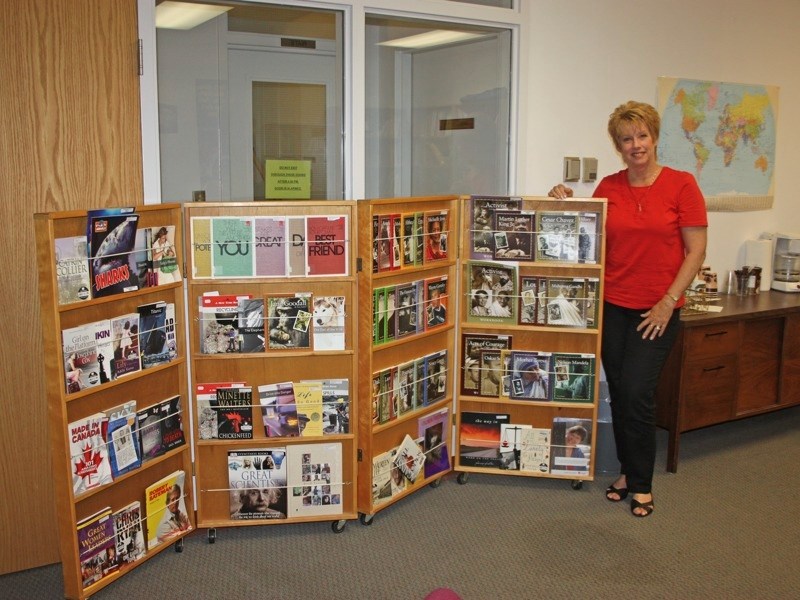Words Work Literacy Society, an organization that finds volunteer adult tutors to work with adult learners, has been so successful in its recruitment efforts that it has more tutors than learners as the office opens for regular hours this month.
Right now, Words Work has 14 tutors for 12 learners.
Words Work literacy coordinator Donna Taylor noted even though she has “quite a full slate of tutors,” she would never turn tutors away. But what Words Work is actively seeking are students to use its services.
“I would hope that people to tell two friends and send learners our way,” said Taylor.
Taylor said she doesn’t doubt there are more learners out there, as she has noticed an influx of immigrants to Athabasca and an increase in demand for English as a Second Language (ESL) training.
“Athabasca seems to be a really good starting point for newcomers to Canada,” said Taylor.
Reaching new learners can be difficult, as traditional forms of advertising assume a certain level of literacy in readers or listeners.
“If they have low literacy, they may not be able to read the newspaper. If they have language problems, they may not be able to read (or understand spoken) English,” Taylor pointed out.
Taylor relies primarily on word of mouth and picture-based ads. She also distributes free books with Words Works brochures inside them and mans booths at events like the Athabasca Community Registration Night.
She notes that one advantage of having extra tutors is that they may work with temporary foreign workers, a demographic for which the literacy society does not receive grant money. Tutors can only serve temporary foreign workers if there are no more learners who fall within Alberta Learning’s funding parameters seeking a tutor.
There are no major changes to Words Work programming this year. Taylor said the flexible model, where learners set their own goals and arrange where and when they would like to meet tutors, works well.
“We cater to our learners — whatever our learners need to learn. It could be language, it could be reading, it could be math; it could be preparation for their GED,” she said. She pointed out that while we might traditionally think of literacy as being language and reading-based, it in fact has nine facets: oral communication, numeracy, continuous learning, working with others, document use, reading text, writing, computer use and thinking skills.
“I have one tutor that takes her learners with her to things like grocery stores and hockey games — and that’s how they learn English,” said Taylor.
Taylor notes that those learning literacy need to sit down with books, but language learning should be more varied and immersive.
“If they’re learning the language for living their life, then that means get out there and live your life. Walk around, read the signs; that kind of thing.”
Taylor works closely with colleges like Lakeland, Portage, Northern Lakes and NorQuest in particular, which offers a Language Instruction for Newcomers to Canada (LINC) program twice a week in the Words Work office. Taylor said she can help learners find out what college programs may be a good fit for them, while the colleges may refer students to Taylor if they need to build up basic literacy skills before enrolment. Students enrolled in formal college education, however, cannot utilize Words Work services simultaneously.
Words Work also offers a family literacy program called “Read and Rhyme” around the region. Preschoolers come to sessions with an adult, and a facilitator sings, rhymes, does little plays, reads books and talks about the importance of early literacy.
The funding for the family literacy program will run out this December, leaving Words Work without the money to offer it in 2014.
“Every three years, I have no money from the government (for family literacy), so last time I raised it in the community, and I may be looking to the community to raise it again,” said Taylor, adding that the community response the last time this happened was “wonderful.”
Words Work operates out of the basement of the Town of Athabasca offices at 4705 49th Avenue. Words Work is usually open Tuesday, Wednesday and Thursday from around 9 a.m. to 4 p.m., though Taylor occasionally steps out for house calls. She can be reached at (780) 675-5650 or at [email protected].



